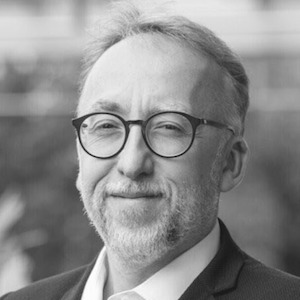
Meet our speaker - Jakub Karnowski

Jakub Karnowski

BIO
In 1997, he graduated from the Warsaw School of Economics and completed MBA studies at the Carlson School of Management and the Hubert H. Humphrey Institute of Public Affairs at the University of Minnesota (USA). He was a scholarship holder of the Margaret Thatcher Foundation at the London School of Economics. In 1999, he participated in the Harvard University – John F. Kennedy School of Government program. In 2001 he completed a course for investment advisors. In 2004 he received a PhD degree in economics at the Warsaw School of Economics. In 2007 he received the CFA (Chartered Financial Analyst) diploma, awarded by the American CFA Institute, confirming his qualifications in investment advisory. In 2021, he started postgraduate studies „Blockchain: business, law and technology” at SGH.
From 2016 to 2019, he headed the private investment fund Luma Investment. Luma invests in ferroalloy companies, foundries and stamping plants, as well as listed companies and high-tech venture capital companies.
In 2018, he was elected by, among others, international financial institutions as an independent member of the Supervisory Board of the Ukrainian Post „Ukrposhta”, where he also serves as Chairman of the Audit Committee.
Since 2017 until today he has been working as an independent member of the supervisory board and chairman of Audit Committees at Allianz Insurance and Reinsurance Company, Allianz Life Insurance Company, Allianz Investment Funds Company and Euler Hermes Poland.
Since 2016, as a World Bank expert, he has participated in railroad restructuring in Thailand, Saudi Arabia, Tanzania, Kazakhstan, Bosnia and Herzegovina and Serbia.
In 2015, he became an independent member of the supervisory board and chairman of the Audit and Risk Committee at HSBC Bank Poland. He held this position until 2019 – the moment when HSBC was operating in Poland as a public limited company.
In early 2012, he received a proposal to restructure PKP Group. He served as the President of PKP S.A. until the end of 2015. His ambition was to change the DNA of the railroad group: to use its assets for customers, especially PKP Intercity. He believes that they have succeeded. He count among the greatest achievements of the team he led: the introduction of new quality and the return of customers to the railroad thanks to the launch of Pendolino trains, the modernization of hundreds of small and large stations and thousands of railroad lines. Thanks to privatizations and stock exchange listing of PKP Cargo it was possible to pay off PKP’s historic debt and to recapitalize PKP Intercity, which in turn enabled the purchase of modern trains from Polish manufacturers.
In 2008 he decided to return to Poland, encouraged by the opportunity to create from scratch an asset management division in Towarzystwo Funduszy Inwestycyjnych bank PKO – the largest subsidiary of PKO Bank Polski. To make this possible, PKO BP had to buy from the Swiss bank Credit Suisse shares in PKO TFI worth several billion zlotys. Until the redemption, the assets of PKO TFI clients were managed by Credit Suisse. The operation was a success. One could say that he was the originator and one of the executors of this de facto first nationalization in Poland since 1990.
As President of the Management Board of PKO TFI he created from scratch a competent and independent asset management team, which already in 2011 achieved some of the best investment results in the market without incurring excessive risk for its clients. The creation of the asset management division in PKO TFI allowed the company to save approx. PLN 100M annually.
In the years 2003-2008 he worked for the World Bank Group in Washington DC as Deputy Executive Director. He was responsible for projects involving the assessment of financial systems of various countries, the management of the World Bank’s balance sheet assets and liabilities, the evaluation of the effectiveness of development aid implementation and the World Bank’s assistance to post-socialist countries in Europe and Central Asia.
At the same time, he advised the Polish Confederation of Private Employers „Lewiatan” and was a member of the Supervisory Board of the Industrial Development Agency SA.
In 1997-2000, he was the assistant, advisor and then the head of the political office of Leszek Balcerowicz, then Deputy Prime Minister and Minister of Finance. He continued his cooperation with the Professor as an advisor for the euro, and then as the Director of the Foreign Exchange Department of the National Bank of Poland in 2001-2003. He was a member of the Investment Committee of the Foreign Exchange Reserves of the National Bank of Poland.

